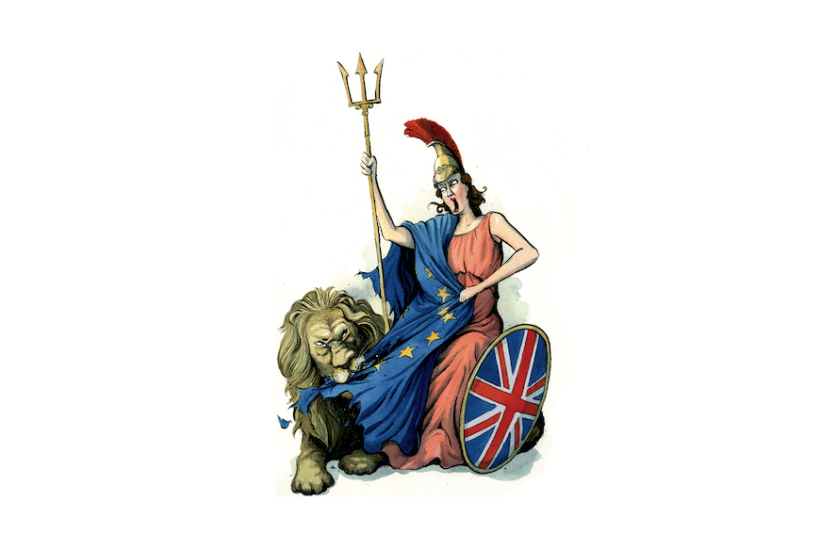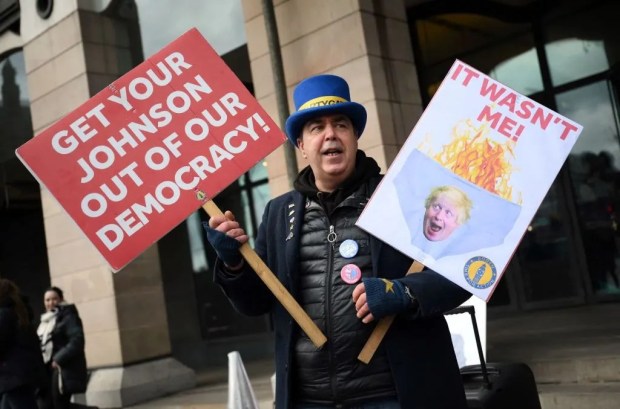All but the most hardened Remainer will admit that the EU’s vaccine rollout has been poor. Up against the UK’s handling of the same feat — and in the face of the European Union’s aggressive response to Britain’s success — many are declaring Brexit a triumph. But the EU’s vaccine debacle demonstrates something more profound and worthy of deeper examination — the continuing importance of the nation state.
As Europe’s vaccine rollout has demonstrated, nation state can often do things faster and better in a crisis than a multi-national entity like the EU Commission. Some will say this proves the nation state should be the highest form of governance, and that multi-national entities are doomed to fail. Except, I think the European Union will actually learn from this crisis, which is where things get interesting.
There is a chance that the EU could retreat from federalism. European leaders may start to realise that the movement to centralise as much as possible — pulling power away from the national capitals and into Brussels and Strasbourg — is not always the answer. The nation state appears poised to re-assert itself across the continent.
The speed at which different countries will need to come out of Covid restrictions, coupled with the differing requirements of each nation state over the next five years, may set the federalist train into reverse. There is a chancethat Germany’s courts may put the brakes on the €750 billion (£640 billion) EU recovery fund, halting Brussels’s attempts to co-ordinate the bloc’s post-pandemic stimulus.
This may sound good to pro-Brexiteers, but a move away from federalism wouldn’t mean the EU splitting apart — the importance of the single market, the customs union, and the money Eurosceptic Eastern European states get from the arrangement make that extremely unlikely. In fact, a retreat from federalism would bring the EU closer to its original concept as a free trade zone, which might have the effect of making re-joining more attractive to the British public as Brussels’s power-grabbing is reversed.
There are, of course, objections: that the single currency dictates ever closer union; that integration is too engrained in the DNA of the project to reverse federalism; given what has happened already, it is too late for the EU Commission power grab to cease. But that is pre-Covid thinking — and even without the crisis, it is not clear that more federalism would have been where the EU was headed. The move to centralise too much into EU power structures has created numerous crises over the last decade. Bear in mind the single currency is almost two decades old already — what have the federalists in Europe really achieved over that time period? The nation state keeps reasserting itself, as it was always going to.
Given Brexit burnout and the current malaise of the pro-EU cause in Britain, Brexiteers may feel they have won and there is nothing to worry about. Except, oddly, a closer examination of public opinion tells a different story.
A pollput out by Opinium over the weekend asked respondents to answer the question: ‘Thinking about Brexit which is closest to your view?’. The results were counterintuitive. In the depths of the greatest nadir of pro-EU sentiment in the UK, where no nationwide party advocates re-joining and neither of the two major parties even want to move away from the Boris deal, 53 per cent — a majority — would ideally like a closer relationship with the European Union than we currently have. Only 19 per cent like things the way that they are now.
What if, over the next ten years, it becomes easier to re-join not only the single market but the EU altogether? A common refrain about getting closer to Europe again is that we’d have to take the single currency, among other issues. What if this ceases to be the case, that the EU would accept a currency opt-out? What if the principle of ever closer union is truly reversed? The loss of sovereignty wouldn’t be all that significant compared to the benefits of access to the European market.
This is the politics of the distant future. Yet if a continuing desire by a large portion of the British public to have a closer relationship with the EU combines with a European Union that drops its federalist urges, the game could change in another half a generation. It would be easy for Brexiteers to assume that we are out of the EU and the single market forever come what may. But an EU that is far less restrictive of nation states could change that equation dramatically.
Got something to add? Join the discussion and comment below.
Get 10 issues for just $10
Subscribe to The Spectator Australia today for the next 10 magazine issues, plus full online access, for just $10.




















Comments
Don't miss out
Join the conversation with other Spectator Australia readers. Subscribe to leave a comment.
SUBSCRIBEAlready a subscriber? Log in